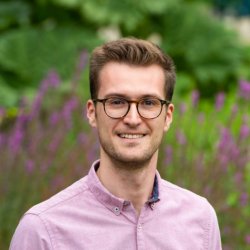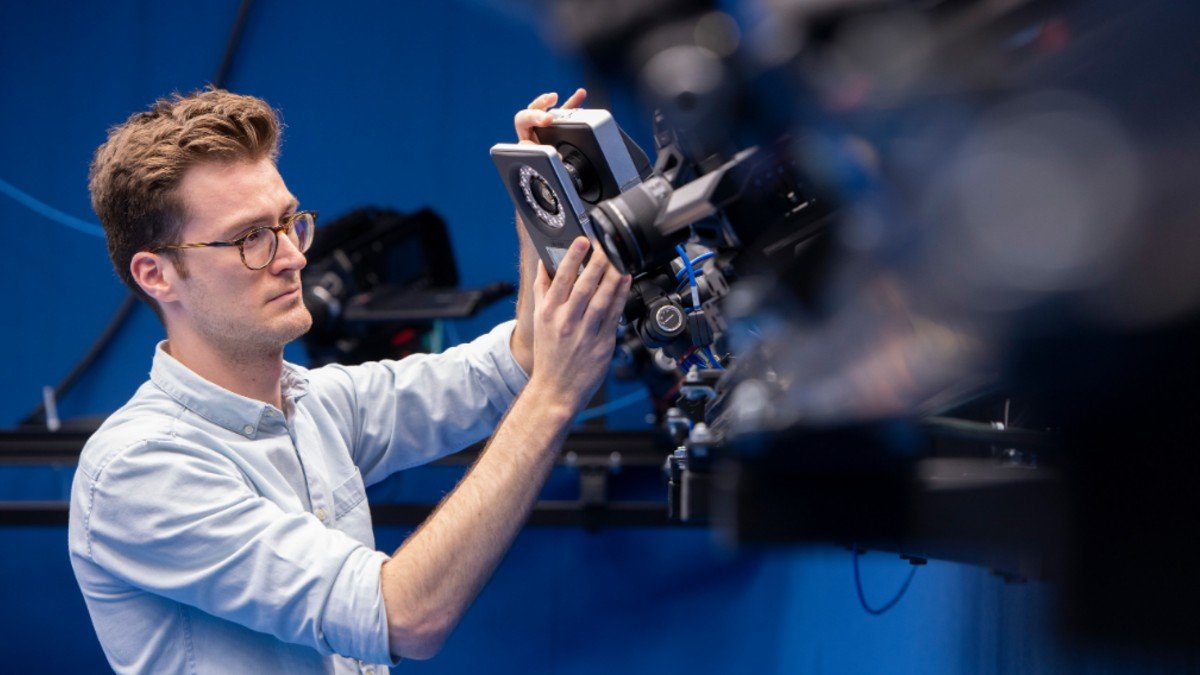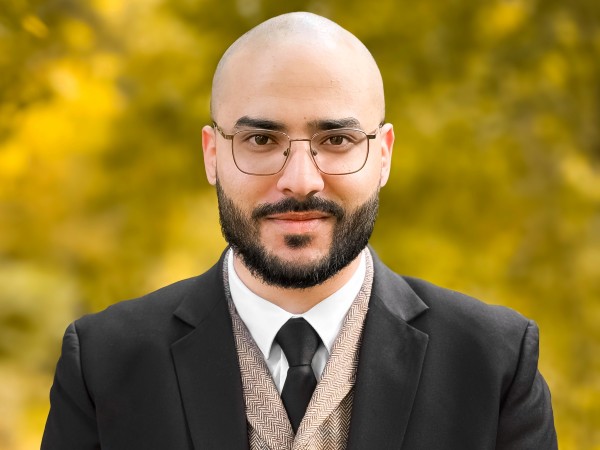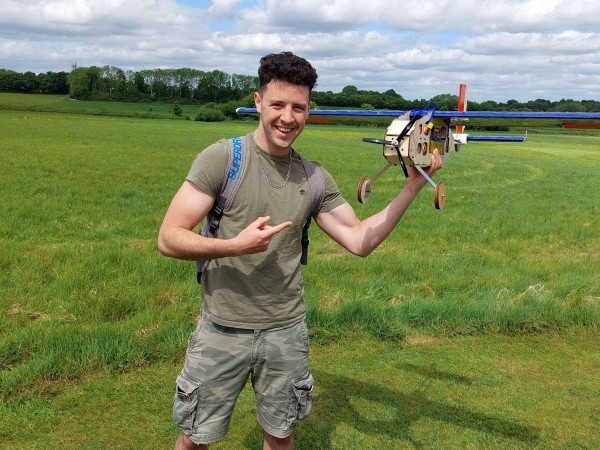
Lewis Bridgeman
"The Centre for Vision Speech and Signal Processing, or CVSSP as it’s known, is a great place to undertake a PhD in machine learning or machine perception. It has a diverse range of research groups all with their own areas of expertise."
Entry year
2017Research project
Multi-camera broadcast footage of sports
What makes Surrey a good place to study?
The University has a great atmosphere, a nice campus and a great support structure for its PhD students – something that was especially evident during the Covid-19 lockdown.
The Centre for Vision Speech and Signal Processing, or CVSSP as it’s known, is a great place to undertake a PhD in machine learning or machine perception. It has a diverse range of research groups all with their own areas of expertise. We have great Christmas parties, too!
What stage of your PhD are you in and what’s it about?
I’m a third-year PhD student and I’m working in the area of computer vision and graphics. But I’m part of a wider research centre with expertise in audio-visual machine perception. I’m investigating using multi-camera broadcast footage of sports, and using this data to synthesise new virtual camera viewpoints – and doing this in virtual and augmented reality.
Are you a big sports fan?
Ironically, I'm completely uninterested in sports. But I've been using football datasets from matches at Wembley, plus datasets from several boxing bouts. I've helped to capture datasets from table tennis and karate tournaments, too, which I’m also using.

Working 9 to 5: Lewis adjusting equipment in the laboratory at CVSSP
What’s a typical week like for you?
My PhD has taken the form of a 9 to 5 job. I spend the majority of my time coding at my desk in my office – although I could equally do this from home. Working in a computer graphics group means I occasionally work in our performance capture lab to secure datasets or create immersive media demos. And, like any PhD student, I get additional perks like going to conferences and teaching undergraduates.
What do you enjoy the most about your PhD?
Either getting to travel for conferences or getting to demonstrate my work. Conferences are a great way to keep up to date on your field, but they’re also great fun. And demonstrating your work – in my case in the form of virtual reality experiences – is a great way to prove to yourself that your work is actually interesting to other people!
What’s been the most challenging part of it?
I found the biggest challenge was coping with the pressures that come with a PhD. There’s a set time limit and deadlines to consider, plus the expectations on when and where to publish.
Where do you see yourself five years after completing your PhD?
There’s lots of exciting work taking place in my field in industry, so I’d most likely seek a job in a company that matches my interests.
What’s one piece of advice you’d offer students who are thinking of doing a PhD?
Don’t pick a PhD for the sake of doing a PhD. Make sure you take the time to find a project and a supervisor that really suit you. I was lucky to end up in a PhD that I really enjoy with a great supervisory team. But it’s best to take the time to think about what you're really interested in working on for three years.
Find out more about postgraduate study at our Centre for Vision, Speech and Signal Processing.

